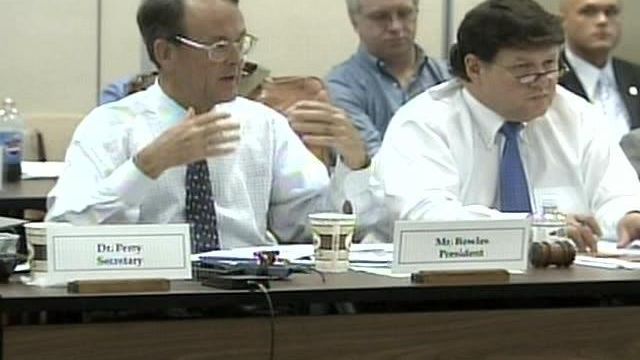UNC-System Leaders Discuss Campus Safety
UNC-system officials are discussing ideas to prevent incidents such as the recent tragedy at Virginia Tech.
Posted — UpdatedUNC-system officials debated whether to provide key card access at all dorms. Before the Virginia Tech shootings, the UNC system recently conducted a test, sending 60 people to dorms at UNC-Chapel Hill and N.C. State University. Officials said all 60 were allowed inside the dorms without any identification.
UNC President Erskine Bowles said students need to be educated about not letting strangers inside dorms. James Oblinger, chancellor at N.C. State, said that education is needed to make campuses safer.
"(It's) changing a mindset and changing the culture," he said.
When one member of the UNC system asked about placing locks on educational buildings, Bowles said officials have to be careful balancing safety with the public's right to an open campus.
UNC-system leaders also talked about having their legislative staffers look into asking the U.S. Congress to make amendments to the Family Educational Rights and Privacy Act, which limits the kind of information schools can call and tell their parents. Right now, federal law limits colleges on what information they can tell families about student behavior.
Bowles said all 16 campuses have access to trained threat assesment teams. Officials said if some campuses do not have a team, then they should be system-wide sharing.
UNC-system leaders did not take specific action at Thursday's meeting other than to announce the formation of a task force to further investigate the issue. The task force will be composed of campus chancellors, campus health counselors, campus police, attorneys, students, faculty and IT staff.
Officials also talked about a campus-wide system that in the case of an emergency, the system would send 200,000 text messages a hour and 100,000 phone calls a hour. However, there was some concern by critics over the reliability of such a system. They were worried that the amount of information could freeze up the cell phone system.
Twelve of the 16 UNC campuses have the software to disseminate emergency information, and they hope to have it rolled out soon.
• Credits
Copyright 2024 by Capitol Broadcasting Company. All rights reserved. This material may not be published, broadcast, rewritten or redistributed.






